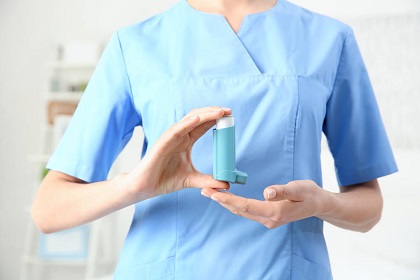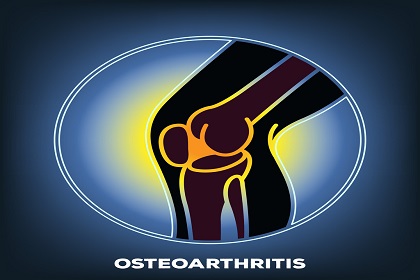Search
Why get vaccinated?
Haemophilus influenzae type b (Hib) disease is a serious bacteria disease. It usually affects children under 5 years old. It can also affect adults with certain medical conditions.
Your child can get Hib disease by being around other children or adults who may have the bacteria and not know it. The germs spread from person to person. If the germs stay in the child's nose and throat, the child probably will not get sick. But sometimes the germs spread into the lungs or the bloodstream, and then Hib can cause serious problems. This is called invasive Hib disease.
Before Hib vaccine, Hib disease was the leading cause of bacterial meningitis. Meningitis is an infection of the lining of the brain and spinal cord. It can lead to brain damage and deafness. Hib disease can also cause:
• Pneumonia
• Severe swelling in the throat, making it hard to breathe
• Infections of the blood, joints, bones, and covering of the heart
• Death
Hib vaccine can prevent Hib disease. Since use of Hib vaccine began, the number of cases of invasive Hib disease has decreased by more than 99%. Many more children would get Hib disease if we stopped vaccinating.
Hib vaccine
Several different brands of Hib vaccine are available. Your child will receive either 1 to 4 doses, depending on which vaccine is used and the vaccine start age.
3 doses are given with interval of 1 to 2 months before the age of 6 months old, and 4thdose after the age of 1 year old.
Hib vaccine may be given at the same time as other vaccines. Hib vaccine may be given as part of a combination vaccine. Combination vaccines are made when two or more types of vaccine are combined together into a single shot, so that one vaccination can protect against more than one disease.
Children over 5 years old and adults usually do not need Hib vaccine. But it may be recommended for older children or adults with asplenia or sickle cell disease, before surgery to remove the spleen, or following a bone marrow transplant. It may also be recommended for people 5 to 18 years old with HIV. Your doctor or the person giving you the vaccine can give you more information.
Some people should not get this vaccine
• Hib vaccine should not be given to infants younger than 6 weeks of age
• A person who has ever had a life-threatening allergic reaction after a previous dose of Hib vaccine, or has a severe allergy to any part of this vaccine, should not get Hib vaccine. Tell the person giving the vaccine about any severe allergies
• People who are mildly ill can get Hib vaccine. People who are moderately or severely ill should probably wait until they recover. Talk to your healthcare provider if the person getting the vaccine isn't feeling well on the day the shot is scheduled
Risks of a vaccine reaction
With any medicine, including vaccines, there is a chance of side effects. These are usually mild and go away on their own. Serious reactions are also possible but are rare.Most people who get Hib vaccine do not have any problems with it.
After vaccination, please stay in clinic observation area for 30 minutes.
Mild problems following Hib vaccine
• Redness, warmth, or swelling where the shot was given
• Fever
These problems are uncommon. If they occur, they usually begin soon after the shot and last 2 or 3days.
Problems that could happen after any vaccine
Any medication can cause a severe allergic reaction. Such reactions from a vaccine are very rare. Fever estimated at 1 in a million doses, and would happen within a few minutes to a few hours after the vaccination.
As with any medicine, there is a very remote chance ofa vaccine causing a serious injury ordeath. Older children, adolescents, and adults might also experience these problems after any vaccine:
• People sometimes faint after a medical procedure, including vaccination. Sitting or lying down for about 15 minutes can help prevent fainting, and injuries caused by a fall. Tell your doctor if you feel dizzy, or have vision changes or ringing in the ears
• Some people get severe pain in the shoulder and have difficulty moving the arm where a shot was given. This happens very rarely
What if there is a serious reaction?
What should I look for?
Look for anything that concerns you, such as signs of a severe allergic reaction, very high fever, or behavior changes. Signs of a severe allergic reaction can include hives, swelling of the face and throat, difficulty breathing, a fast heartbeat, dizziness, and weakness. These would start a few minutes to a few hours after the vaccination.
What should I do?
If you think it is a severe allergic reaction or other emergency that can't wait, call 120 or get the person to the nearest hospital. Otherwise, call your doctor.
Where can I get more information?
• Jiahui Health
Contact number: 400-868-3000
• Shanghai Municipal Center for Disease Control & Prevention
Contact number: 021-62758710
Website: http://www.scdc.sh.cn
Reference
The US Centers for Disease Control and Prevention. Vaccine Information Statement: Hib Vaccine, 04/02/2015
Click the link for more information on Family Medicine Clinical Service
Click the link for more information on Pediatrics Clinical Service











